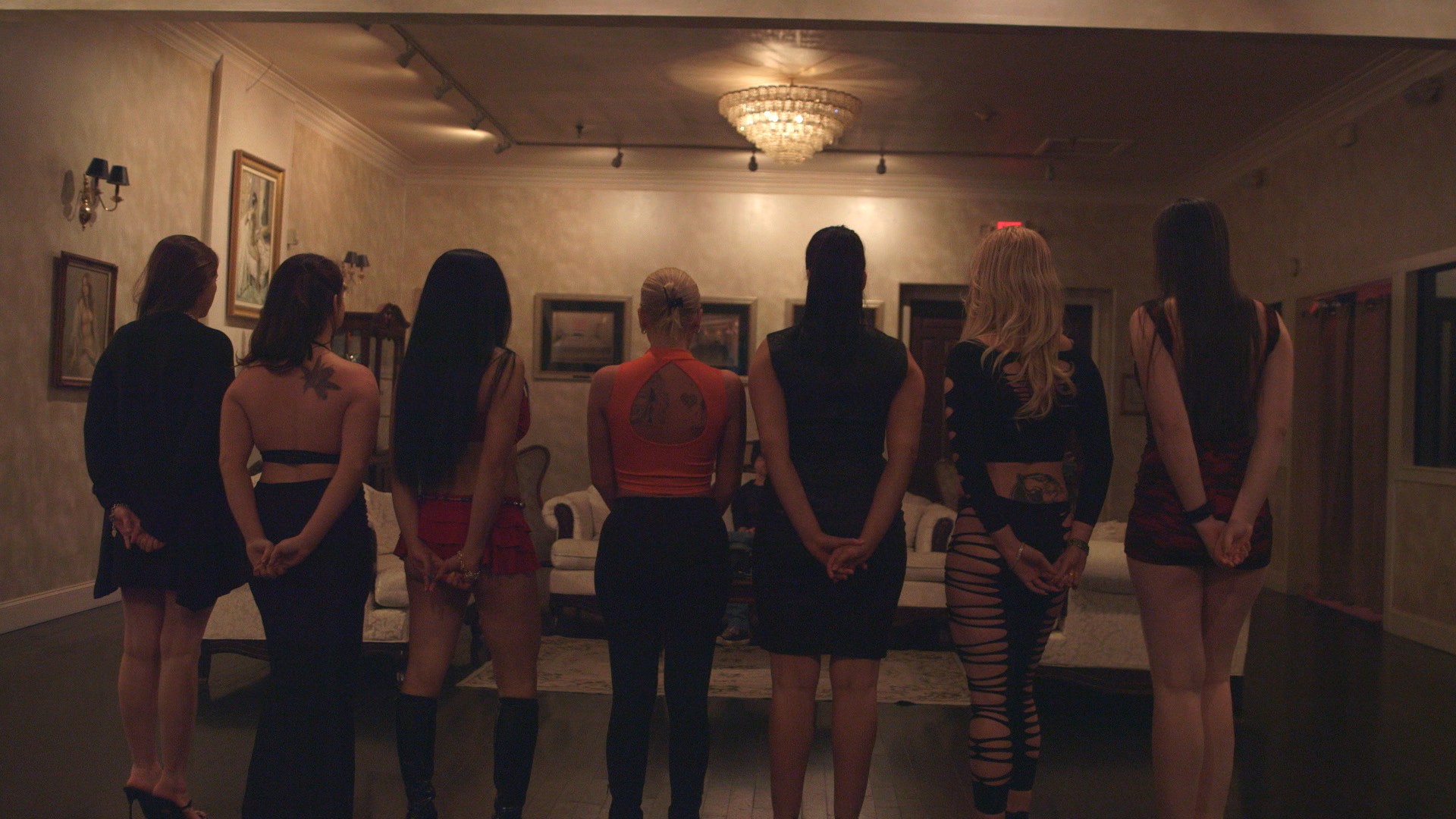Terri-Jean Bedford, left to right, sits alongside lawyer Alan Young and Valerie Scott during a press conference in Toronto on Monday March 26, 2012 | Aaron Vincent Elkaim, CP.
Two years into the Liberal government's mandate, a group fighting for sex workers' rights is accusing the prime minister of neglecting his promises to women.Justin Trudeau's 2015 electoral campaign was heavy on the feminist rhetoric, yielding the now-famous "because it's 2015" catchphrase and setting the tone for a government that would promote and protect women's rights.But Jenn Clamen, a coordinator at Montreal sex worker support organization STELLA, says that for the women in the sex industry, these statements now seem like smoke and mirrors."The Liberal party is constantly failing to live up to their public relations campaign," she told VICE. "They disrespect the Charter and have ignored the Supreme Court of Canada [on the] Bedford decision; they are anti-feminist in that they promote policies that encourage police in the lives of women, particularly black, Indigenous and migrant sex workers. They are in no way protecting sex workers' rights." The Bedford decision was the result of a 2013 Supreme Court challenge of Canadian prostitution laws. It is named after former dominatrix Terri-Jean Bedford, who successfully argued that existing laws—which banned brothels, street solicitation and "living on the avails of prostitution"— were unconstitutional. The victory forced the Harper Conservatives to create The Protection of Communities and Exploited Persons Act, or C-36, which was heavily criticized by human rights activists who claimed this new legislation was also putting women in danger.Though sex work in and of itself is technically legal under C-36, the law still criminalizes the act of buying sex and "living on the avails of prostitution," clauses which many say have pushed the industry further underground and outside the realm of safety.One of Trudeau's electoral promises included a revision of C-36. In a 2015 town hall with VICE, Justin Trudeau told this reporter that "this law might actually make things worst, which is why we voted against it. How we move forward on this as a society, it needs to be looking on how we are ensuring the physical safety and protection of predominantly women in extremely vulnerable situation."In the same town hall, Trudeau called the topic "extremely complex and difficult" but said it was the kind of discussion "a responsible open government looking to base its decisions on evidence and best practices should take a thoughtful look at."But Clamen says that while some meetings were held at the very beginning of Trudeau's mandate, little has been done since."We want the framework to change so that sex workers are recognized as workers and as people, which then trickles down into society and fewer people think they can violate us," she says. "The more we take sex work out of context of criminality, the more broader society can respect and protect sex workers."Ministry of Justice spokesperson Simon Rivet declined VICE's request for an interview, but wrote that Jody Wilson-Raybould "had committed to review the adequacy of the Protection of Communities and Exploited Persons Act(former Bill C-36), in responding to all issues identified in the Supreme Court of Canada's 2013 Bedford decision."Because the process is ongoing, he wrote, they would be unable to comment. "The Minister has engaged with a range of stakeholders—including those currently and formerly involved in the sex trade and those who represent these groups, as well as front line service providers, academics, and law enforcement—to solicit views on the criminal law reforms' impact."Clamens concedes the government has had its hands full with the opioid crisis and the 60s scoop files, but says sex workers' rights organizations are running out of patience and that another court challenge is not out of the question."After two years, these conversations just aren't enough," Clamen says. "We need to move on to something else."Follow Brigitte Noël on Twitter.
The Bedford decision was the result of a 2013 Supreme Court challenge of Canadian prostitution laws. It is named after former dominatrix Terri-Jean Bedford, who successfully argued that existing laws—which banned brothels, street solicitation and "living on the avails of prostitution"— were unconstitutional. The victory forced the Harper Conservatives to create The Protection of Communities and Exploited Persons Act, or C-36, which was heavily criticized by human rights activists who claimed this new legislation was also putting women in danger.Though sex work in and of itself is technically legal under C-36, the law still criminalizes the act of buying sex and "living on the avails of prostitution," clauses which many say have pushed the industry further underground and outside the realm of safety.One of Trudeau's electoral promises included a revision of C-36. In a 2015 town hall with VICE, Justin Trudeau told this reporter that "this law might actually make things worst, which is why we voted against it. How we move forward on this as a society, it needs to be looking on how we are ensuring the physical safety and protection of predominantly women in extremely vulnerable situation."In the same town hall, Trudeau called the topic "extremely complex and difficult" but said it was the kind of discussion "a responsible open government looking to base its decisions on evidence and best practices should take a thoughtful look at."But Clamen says that while some meetings were held at the very beginning of Trudeau's mandate, little has been done since."We want the framework to change so that sex workers are recognized as workers and as people, which then trickles down into society and fewer people think they can violate us," she says. "The more we take sex work out of context of criminality, the more broader society can respect and protect sex workers."Ministry of Justice spokesperson Simon Rivet declined VICE's request for an interview, but wrote that Jody Wilson-Raybould "had committed to review the adequacy of the Protection of Communities and Exploited Persons Act(former Bill C-36), in responding to all issues identified in the Supreme Court of Canada's 2013 Bedford decision."Because the process is ongoing, he wrote, they would be unable to comment. "The Minister has engaged with a range of stakeholders—including those currently and formerly involved in the sex trade and those who represent these groups, as well as front line service providers, academics, and law enforcement—to solicit views on the criminal law reforms' impact."Clamens concedes the government has had its hands full with the opioid crisis and the 60s scoop files, but says sex workers' rights organizations are running out of patience and that another court challenge is not out of the question."After two years, these conversations just aren't enough," Clamen says. "We need to move on to something else."Follow Brigitte Noël on Twitter.
Advertisement

Advertisement
